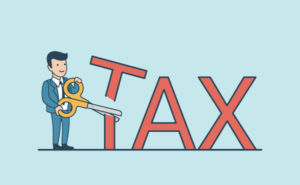Things to Consider for Your 2015 Capital Gains Tax
There are all kinds of investors in the world. Some are looking to make a quick buck by buying and then quickly selling stocks as soon as they increase in value. Other investors buy stocks with an eye toward the future, which means they are in it for the long haul.
In any case, anyone who invests wants to be successful at it. It’s a great feeling to buy stock in a company and see that stock increase in value. However, at some point if you plan on selling that stock and cashing in or your gains, you will have to give a portion of those gains to the taxman. What percentage you will owe will depend on the size of your gain and how long you have owned the stock.
The government wants investors to hold onto their stocks longer. To encourage this they have a lower tax percentage on stocks held longer than a year. Whether you’re a quick turnaround trader or a long-term investor here’s what you should be aware of in 2015 for your capital gains taxes.
First, generally all you need to know to determine your capital gains is the difference between what you paid for the stock and how much you sold it for. When you know that amount then you can calculate the tax. Your tax rate will depend on which bracket you’re in. There are three that apply:
- If your ordinary income puts you in the 10-15 percent tax bracket, then your long-term capital gains rate is 0 percent.
- If your ordinary income falls in one of the 25, 28, 33, or 35 percent tax brackets then your long-term capital gains rate is 15 percent.
- If your ordinary income is in the 39.6% tax bracket, then your long-term capital gains rate is 20%.
There are a few other caveats to remember. For high-income earners, there is an additional 3.8 percent surtax on net investment income. Also, you only pay taxes on the net of your capital gains, which can make a big difference if you sell more than one stock in a year. If you want to learn more about capital gains taxes then please contact GROCO for more answers. Click here or call us at 1-877-CPA-2006.
Important Tax Filing Deadlines You Don’t Want to Miss
Before you send in your tax return there are a lot of things you have to remember, which is why having a tax checklist is good idea. Of course, the right accountant will help you with that as well. However, before you ever get to that final point in the tax-filing process, you need to…
Which Tax Policy Issues Will Be Big in 2017?
Taxes, taxes, taxes. One could argue that 2017 will bring more changes to our country’s tax system and policies than we’ve ever seen before. The hope is that all that change will bring about better rewards, including a simplified tax return process and tax cuts for most, if not everyone. So as the New…
There’s Still Time to Cut Your 2016 Tax Bill
So with tax season officially kicking off next week, as the IRS will begin receiving returns on January 23rd, it would seem that the time to save money on your 2016 taxes is now gone. However, there is still a nice tax break available for this year all the way up till April 18th (the…
Tax Season Starts Next Week – Are You Ready?
It’s almost here. That glorious time of year known and loved by millions as “tax season.” Of course, the reality is that most taxpayers don’t look forward to this time of year – unless they’re expecting a large return – but even those that fall into this category still don’t look forward to the…




